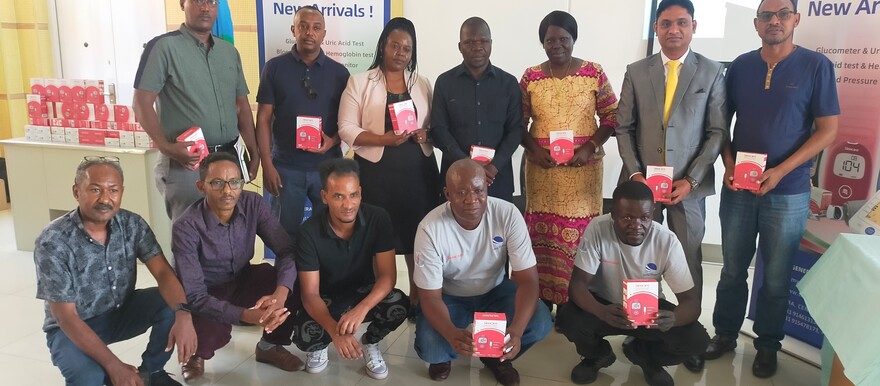The South Sudan health ministry on Wednesday launched a three-day free diabetes testing drive at the Juba Teaching Hospital and unveiled medical equipment by Tamy Pharma in conjunction with Sinocare.
During the launch, Dr. Harriet Akello Pasquale, the ministry’s Director General for Medical Services urged the Juba residents to benefit from the drive and warned of the dangers of noncommunicable diseases including diabetes and hypertension.
“South Sudan like any other country in the world is facing the challenge of the growing public health concerns of non-communicable diseases like hypertension and diabetes, which is not only in the developed countries but also becoming a growing public health disease of concern in South Sudan,” Dr. Akello said.
Although South Sudan lacks current data on the prevalence of diabetes and hypertension, Dr. Akello urged the population to be cautious and vigilant against these diseases.
“Based on existing data, the prevalence of diabetes based on the previous studies conducted five or six years ago shows that we have a prevalence of about 6.3 and for hypertension studies show that we have a prevalence of about 9.5 and these are really old data,” she added. “It sounds low but again it shouldn’t motivate us to stay silent that South Sudan is a low prevalence country for diabetes and hypertension, but we should be very vigilant.”
Dr. Akello noted that the focus on tropical diseases which are highly prevalent in South Sudan has led to the neglect of noncommunicable diseases.
“We know South Sudan is a country which has a high prevalence of all tropical diseases so most of our focus goes to the treatment of tropical diseases and we forget the non-communicable disease like diabetes and hypertension so we need to balance our efforts to address noncommunicable diseases like diabetes and hypertension because the effects can be very great, they can cause high mortality rates, especially among the elderly” she concluded.
According to the World Health Organisation, Noncommunicable diseases (NCDs), also known as chronic diseases, tend to be of long duration and are the result of a combination of genetic, physiological, environmental and behavioural factors.
The main types of NCD are cardiovascular diseases (such as heart attacks and stroke), cancers, chronic respiratory diseases (such as chronic obstructive pulmonary disease and asthma), and diabetes.




